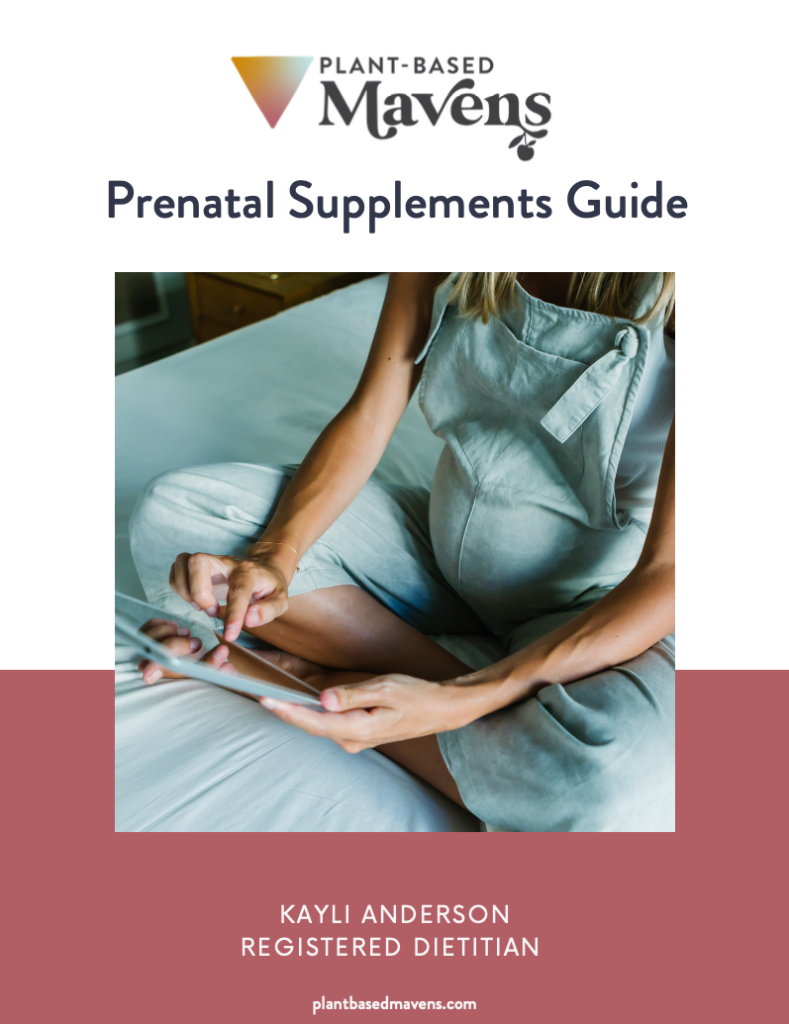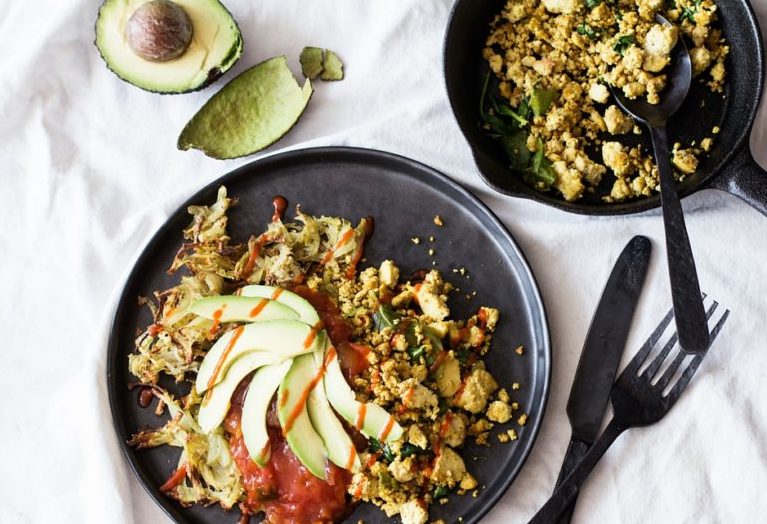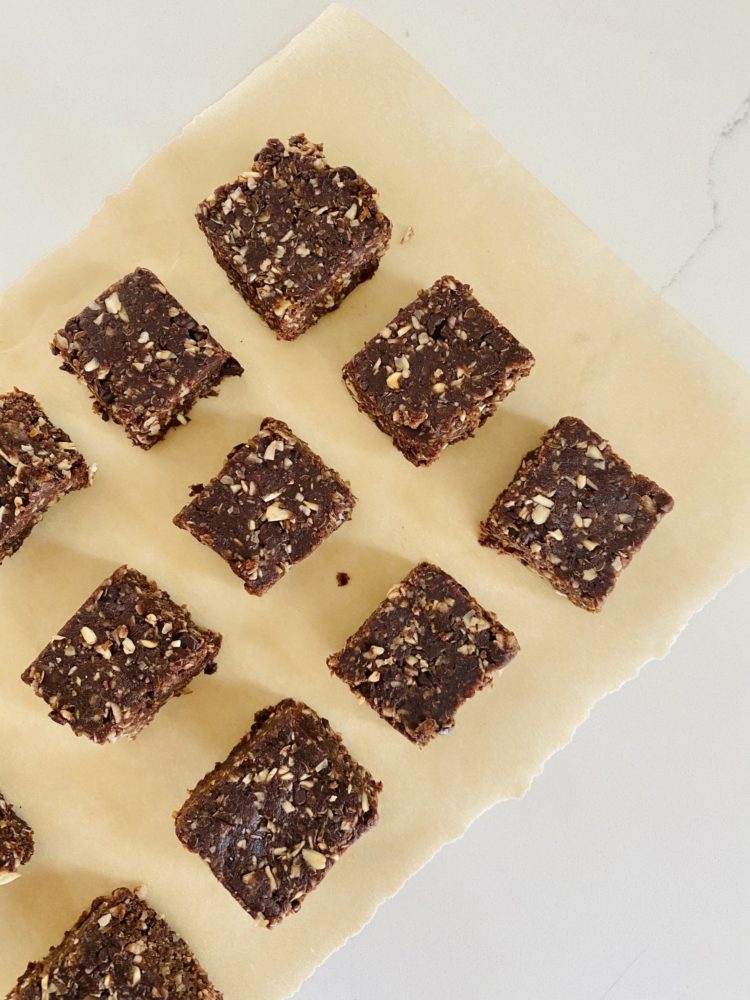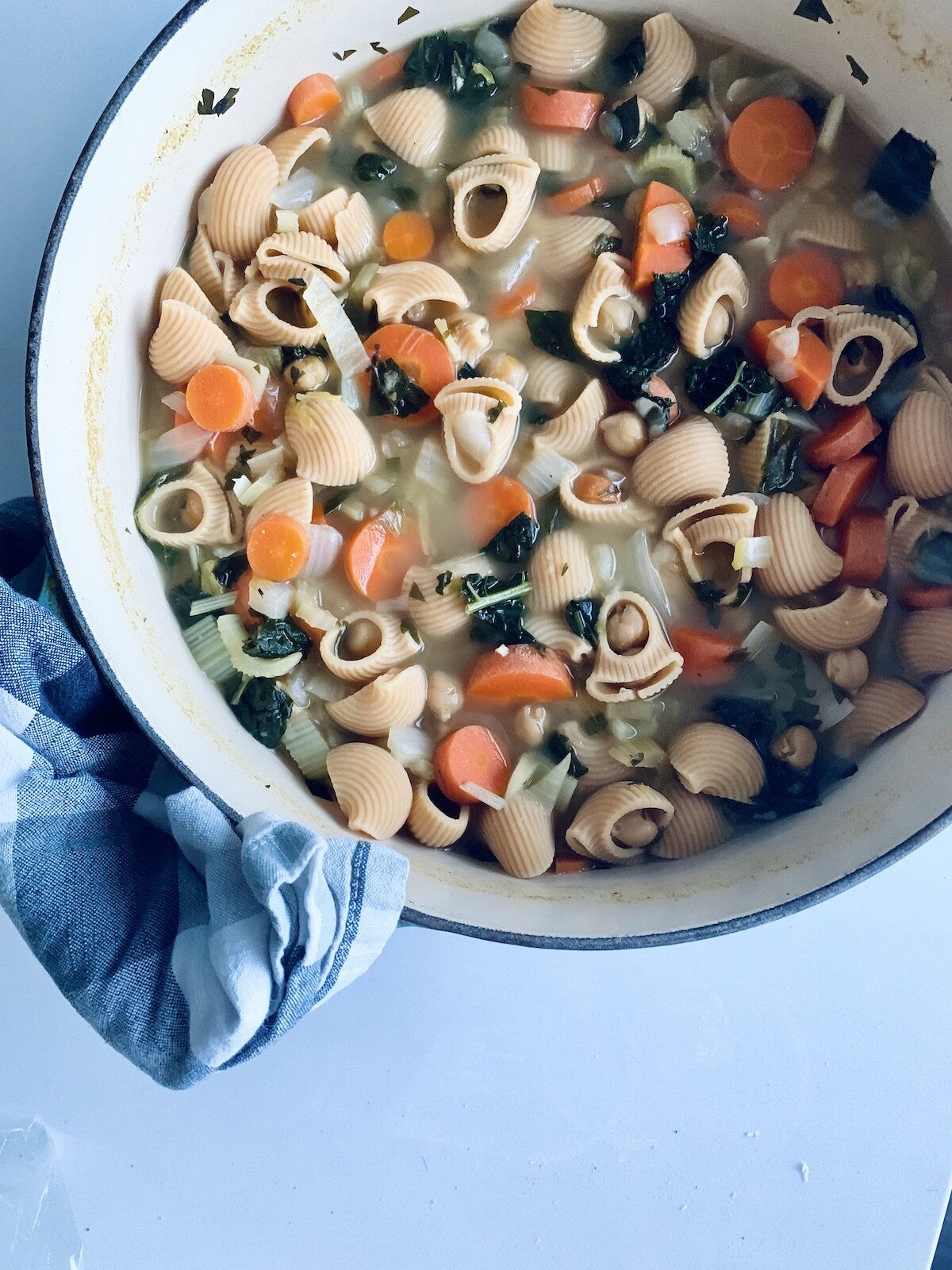Choosing the best prenatal vitamin can feel confusing and overwhelming, especially if you’re a plant-based mama-to-be! Picking the right prenatal for your needs is really important for both you and baby, and the truth is that most prenatals fall short in many nutrients, particularly if you’re predominantly plant-based or vegan. Let’s break down why you need a prenatal vitamin and what to look for when you’re shopping the supplement aisle.
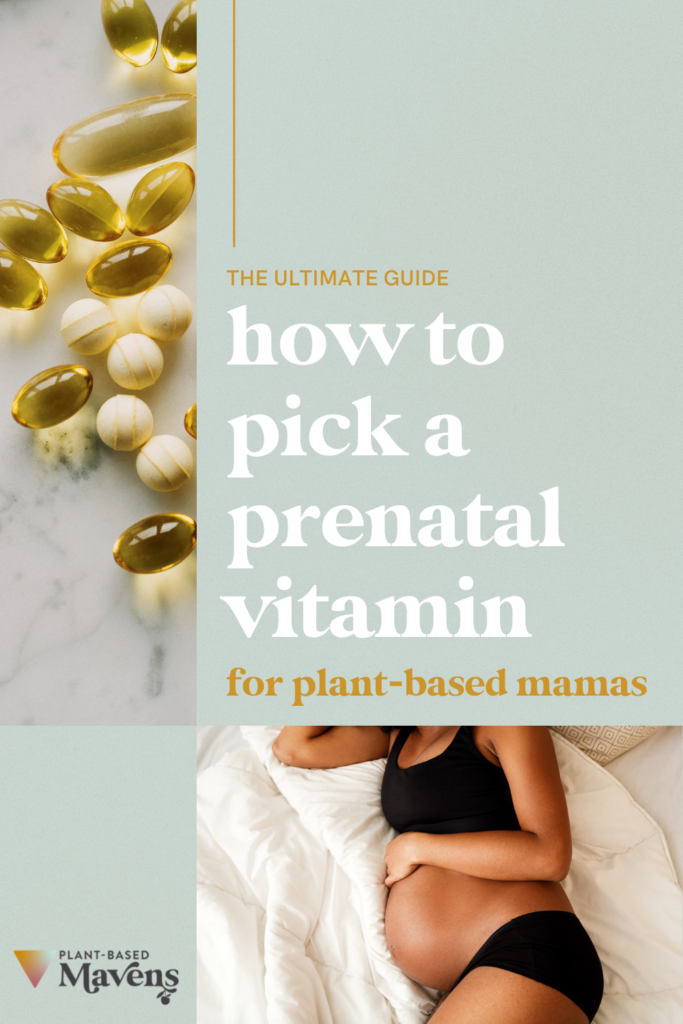
What Are Prenatal Vitamins?
Prenatal vitamins are specially formulated supplements that provide essential nutrients needed during pregnancy. These vitamins help ensure that both the mother and baby are getting the necessary vitamins and minerals to support a healthy pregnancy and fetal development.
The best prenatal vitamins typically include key nutrients such as folic acid, vitamin D, choline, calcium, vitamin C, thiamine, riboflavin, niacin, vitamin B12, vitamin B6, vitamin E, zinc, iron, and vitamin A. These nutrients play vital roles in supporting the immune system, healthy skin, hormone production, placenta development, and fetal growth.
The amounts of each nutrient varies from brand to brand, so it can be tricky to know which one to choose! A plant-based dietitian can help guide you in choosing which specific vitamins and dosages are appropriate for you based on your individual needs.
Prenatal vitamins are an important component of a healthy pregnancy, along with nutritious foods, movement, rest, and other self-care practices.
Why You Need a Prenatal Vitamin
Even with careful attention to nutrition during pregnancy, taking a prenatal vitamin is a must for all mamas. While you might love the idea of meeting all your needs with real food, the fact is that modern life makes it challenging for most women to get all the vital nutrients they need on a daily basis during pregnancy. A prenatal does not take the place of a healthy, nourishing diet, but the right prenatal provides important insurance during a time in your life when meeting your needs is extra important. Taking a good prenatal vitamin increases your chances of getting pregnant and increases the likelihood of a healthy pregnancy.
Many of the nutrients in a prenatal play key roles in the growth and development of your baby and help keep you thriving and balanced throughout your pregnancy, and even post-pregnancy. Many women begin their pregnancy journey already depleted. Add increased needs and pregnancy food aversions to this, and nutrient depletion can follow you (and worsen) into postpartum, affecting your energy, emotional wellbeing, and overall health. A prenatal will help you top off nutrient stores so you (and baby) stay nourished throughout pregnancy, and beyond!
When Should You Start Taking a Prenatal Vitamin?
It’s a good idea to start taking a prenatal vitamin as soon as you start planning a pregnancy. Ideally, you begin taking one at least 3 months before conception. This gives you time to top off stores of important nutrients like folate that are necessary in the earliest days of pregnancy. If you don’t have the luxury of planning that far ahead, simply begin taking a daily prenatal as soon as you find out you’re pregnant so you get the nutrients you need in the earliest weeks of pregnancy.
When Should You Stop Taking a Prenatal Vitamin?
It is recommended to continue taking prenatal vitamins throughout your pregnancy and even after giving birth if you are breastfeeding. Prenatal vitamins help fill in any nutritional gaps and ensure that both you and your baby are getting the necessary nutrients for optimal health. You may also choose to switch to a postnatal vitamin, which will have a slightly different nutrient profile to match your postpartum needs (this is what I did!).
There will come a time when you no longer need to take prenatal vitamins. Once you have stopped breastfeeding and feel that you have repleted your nutrition status (birth and breastfeeding can be very depleting), you can transition to a regular multivitamin or a specific supplement regimen tailored to your needs.
It is important to talk to your healthcare provider before making any changes to your supplement routine. They can assess your individual situation and provide personalized recommendations on when it is appropriate to stop taking prenatal vitamins. Remember that every woman’s nutritional needs are different!
What To Look For In Prenatal Vitamins – The Basics
If you’ve ever visited the supplement aisle at any grocery or health food store, then you’re no stranger to the overwhelming amount of choices when it comes to multivitamins and supplements. Prenatal vitamins are no different. So, how do you sort through all the options and choose the best prenatal for you? With any supplement, here are a few basic things to look for:
Purchase from a trusted source.
It’s best to buy supplements from a health food store or directly from the brand’s website if possible. Avoid buying from discount retailers where proper storage and handling of supplements cannot be guaranteed. Better yet, ask for the help of the staff at a health food store or a trusted healthcare provider.
Choose plant-based/food-based forms.
In general, look for supplements that use plant-based and food-based forms of nutrients instead of synthetic forms. A couple of big exceptions to this are vitamin B12 and vitamin D since real food forms of these are either hard to come by or are animal-derived. Avoid supplements that contain additives and fillers.
Look for outside certifications.
Like other supplements, prenatal vitamins are not evaluated by the FDA, so there is no guarantee that they actually contain what they claim to. To ensure some level of confidence, look for supplements that have been tested and verified by third-party organizations like Consumer Lab, NSF International, or U.S. Pharmacopeia.
Find supplements that align with your values.
You might also want to look for other qualities in the supplements you choose. For example, those that are certified Vegan or Cruelty-free, recyclable packaging, sustainable sourcing practices, or gluten-free.
The truth is, you might be hard pressed to find a supplement that meets all of the above criteria and contains adequate amounts of key nutrients (more on that below). Choose the one that comes the closest to meeting your needs.
What Vegan Moms Need To Know About Prenatal Vitamins
When it comes to choosing a prenatal multivitamin as a plant-based or vegan mom, there are a few key factors to consider in order to ensure you and your baby are getting all the necessary nutrients. Here are some things to look for in a prenatal vitamin for vegan moms:
- Plant-based Sources: As a vegan, it’s important to choose a prenatal vitamin that sources its nutrients from plant-based ingredients. Look for vitamins that contain plant-derived versions of essential nutrients such as vitamin D3 from lichen or vitamin E from sunflower.
- Essential Nutrients: Make sure the prenatal vitamin contains key nutrients that are crucial for a healthy pregnancy, such as folic acid, iron, calcium, B12, and vitamin D. These nutrients are essential for your baby’s development and overall health.
- Omega-3 Fatty Acids: DHA, an omega-3 fatty acid, is important for your baby’s brain and eye development. Look for prenatal vitamins that contain DHA derived from plant-based sources, such as algae oil, to ensure you are getting this important nutrient without the need for fish-based products. Most prenatal do not contain DHA, so you’ll likely need to take an additional supplement.
- Choline: Choline is essential for fetal brain development, so make sure your prenatal vitamin contains this nutrient. You may want to consider an additional choline supplement to ensure you’re getting enough choline.
- Ease of Use: Consider the form of the prenatal vitamin and how easy it is to take. Some vitamins may need to be taken multiple times a day, while others may be in a convenient one-a-day format. There are pills and chewable available too. Choose a prenatal vitamin that fits your lifestyle and preferences.

Prenatal Multivitamin Checklist For Plant-based and Vegan Mamas
Now that we’ve covered the basics, it’s time to flip the bottle over and take a closer look at the specific nutrients and amounts that it contains. Here’s your nutrient checklist for predominantly plant-based and vegan mamas.
Methylfolate or Folic Acid
At least 600mcg, ideally 800-1,000 mcg
Folic acid is important in a prenatal vitamin because it helps prevent birth defects like neural tube defects. It is recommended that pregnant people consume at least 400 to 800 micrograms of folic acid per day to support healthy development of their baby. Because plant foods like leafy greens are high in folate, vegetarians tend to have higher folate intake compared to omnivores.
Iodine
At least 150mcg, ideally 200-220 mcg
Iodine is important in a prenatal vitamin because it is necessary for brain development and nervous system development. It helps in the production of thyroid hormones, which are crucial for using and storing energy from food. Adequate iodine intake during pregnancy can prevent complications such as stunted growth, mental disability, and deafness in the baby. It is essential to ensure that prenatal vitamins contain sufficient iodine to support the baby’s healthy development. Learn more about iodine here.
Iron
At least 27 mg
Iron is important in a prenatal vitamin because it supports the development of the placenta and fetus. The body needs extra iron during pregnancy to make blood and supply oxygen to the growing baby. The blood supply increases by almost 50% during pregnancy! In addition to eating iron-rich foods and vitamin C rich foods to boost iron absorption, ensuring an adequate intake of iron during pregnancy through prenatal vitamins can help prevent iron-deficiency anemia and support overall fetal development. Because needs are so high during pregnancy, vegan women may need an additional iron supplement. Keep an eye on your levels during pregnancy to make sure you’re getting enough. Learn more about iron here.
Selenium
At least 30mcg
Selenium is important in a prenatal vitamin because it plays a crucial role in protecting the developing fetus from oxidative stress and supporting proper thyroid function in both the mother and the baby. Selenium is necessary for the production of thyroid hormones, which are essential for fetal brain development and overall growth. Including selenium in prenatal vitamins can help ensure that both the mother and baby have adequate levels of this important mineral during pregnancy.
Vitamin D3
At least 15mcg (600 IU)
Vitamin D is important in a prenatal vitamin because it supports the healthy development of baby’s bones, supports maternal bone health, and has been linked to a reduced risk of pregnancy complications such as preeclampsia, gestational diabetes, preterm birth, and C-section delivery. Research also suggests that a significant portion of pregnant women may not be getting enough vitamin D, highlighting the importance of ensuring adequate levels through a prenatal supplement. Most women should aim for a minimum of 600 IU of vitamin D, but it may be wise to get your levels tested and supplement accordingly. Learn more about vitamin D here.
Vitamin B12
At least 25mcg
Vitamin B12 is important for vegans during pregnancy because it is essential for cognitive health and central nervous system development in both the mother and the baby. Since vitamin B12 is primarily found in animal products, vegans may have a higher risk of deficiency during pregnancy. Supplementing with vitamin B12 can help ensure that both the mother and baby are receiving adequate levels of this crucial nutrient for optimal health and development. Learn more about vitamin B12 here.
Bonus Nutrients To Look For in a Prenatal
Omega-3 DHA
400 mg algae-based omega-3 DHA
Omega-3 DHA is another crucial nutrient during pregnancy because it is a key building block for fetal development. The fetus relies on the mother to obtain DHA, which is crucial for the baby’s brain and eye development. Pregnant women need to ensure they have an adequate intake of DHA to support both their own needs and the needs of their developing baby. It is recommended that pregnant women consume at least 300 mg of DHA daily to support healthy fetal development. Learn more about omega 3s here.
Most prenatals will not include DHA, and a separate supplement will be necessary for anyone who does not regularly consume fatty fish.
Choline
400 mg
Choline is a new kid on the block when it comes to prenatal nutrition. It is a B vitamin that plays a major role in cognitive health and is necessary for early brain development, communication between cells, and gene expression. Some evidence indicates that low plasma choline levels are associated with neural tube defects.
Not all prenatal vitamins contain adequate choline, and plant-based foods are relatively low in choline. If you do not eat egg yolks (a rich source of choline) or are vegan, you may consider an additional choline supplement.
Zinc
15-45 mcg
Zinc is another important prenatal vitamin ingredient because of its role in fetal growth and development. Zinc is essential for cell growth, immune function, and DNA synthesis, making it vital for the proper development of the fetus. Adequate zinc intake during pregnancy can help prevent complications such as preterm birth, low birth weight, and developmental delays in the baby. It also supports the mother’s immune system and helps with wound healing after childbirth. Learn more about zinc here.
Most prenatal will include your daily zinc needs. In addition, aim to eat 2-3 servings of beans and lentils everyday.
Others
Vitamin B6 and Vitamin C have both been shown to support fertility
Best Prenatal Vitamins For Vegans and Vegetarians
Want help choosing the best prenatal vitamin for you? Grab the FREE Prenatal Supplement Guide!
Want More Plant-based Pregnancy Tips?
Grab the free PBM Pregnancy Checklist to make sure you and baby are getting everything you need. Also, check out this post – The Ultimate Guide To Plant-based Pregnancy.
